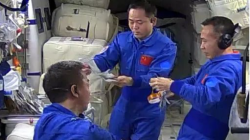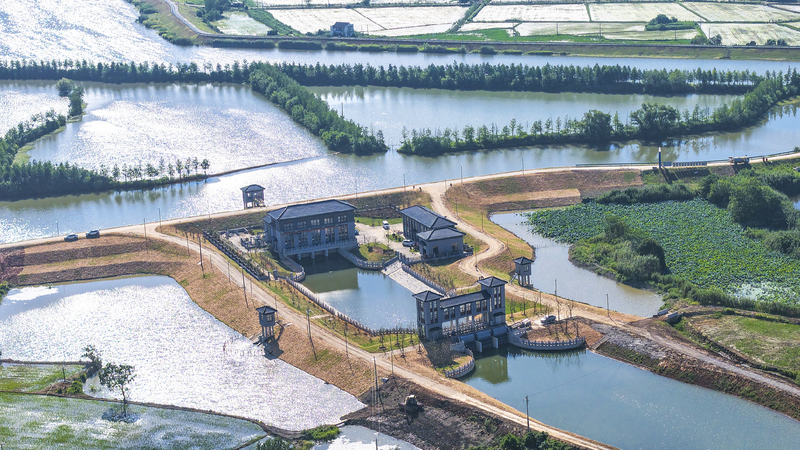Hey there, space enthusiasts! 🌟
Scientists from the Chinese mainland have made an amazing discovery aboard the China Space Station. They’ve found a brand-new species of microbe called Niallia tiangongensis! 🦠
What is a microbe?
Microbes are tiny living things that are so small, you need a microscope to see them. They include bacteria, viruses, and fungi. Even though they’re tiny, microbes can be really important! 🌍
Why is this discovery so cool?
Finding a new microbe in space is super exciting because it helps scientists understand how life can survive in space conditions. Niallia tiangongensis is especially amazing because it can handle the tough environment of space! 🚀
How does this microbe survive in space?
This tiny creature has special tricks to stay alive:
- Stress Buster: It can protect itself from things that would usually harm cells, like radiation and extreme temperatures. It uses a special substance called bacillithiol to stay balanced. 🔬
- Biofilm Builder: It can form biofilms, which are like tiny shields that protect groups of microbes. This helps them survive harsh conditions. 🛡️
- DNA Repair Hero: If its DNA gets damaged by space radiation, it can fix itself! That’s like having a built-in repair kit. 🛠️
Why does this matter?
Understanding how Niallia tiangongensis survives can help us:
- Keep astronauts safe by controlling microbes in space habitats. 🧑🚀
- Discover new ways to protect cells, which could be useful in medicine. 💊
- Learn how to use certain compounds more sustainably. 🌱
What’s next?
As the China Space Station continues to operate, scientists hope to learn even more about microbes in space. Who knows what other incredible discoveries await us out there in the stars? ✨
Stay curious, future space explorers! 🛰️
Reference(s):
Chinese scientists discover a novel species in China Space Station
cgtn.com




